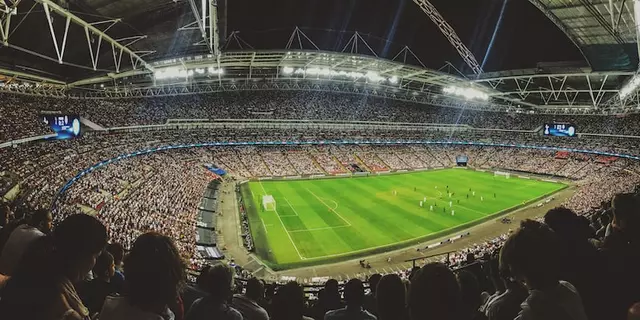Understanding the Basics of a Soccer Match
Before we dive into the specifics of the duration of a soccer match, it's important to understand the basics of the game. A soccer game, also known as football in many parts of the world, is a sport played between two teams of eleven players each. The objective of the game is to score more goals than the opposing team within a stipulated time frame.
The game is controlled by a referee who has full authority to enforce the rules of the game. Soccer is a globally recognized sport, played in a rectangular field, with a goal at each end. The players use any part of their body except their hands and arms to maneuver the ball into the opponent's goal.
Regulation Time in a Soccer Match
The standard duration of a soccer match, as defined by FIFA (Fédération Internationale de Football Association), the international governing body for soccer, is 90 minutes. This time is divided into two halves of 45 minutes each, with a 15-minute break in between known as half-time. The clock doesn't stop during each half, which means the game flows continuously even when the ball is out of play.
However, it's worth noting that the actual length of a soccer match often exceeds 90 minutes due to additional time and stoppages. This leads us to our next point – stoppage time and extra time.
Understanding Stoppage Time
Stoppage time, also known as injury time or added time, is a common feature in soccer matches. This time is added at the end of each half to compensate for disruptions that occur during regular play. These disruptions include substitutions, injuries, time-wasting, or any other interruptions deemed by the referee.
The amount of stoppage time is at the discretion of the referee and is usually indicated by the fourth official on the sidelines. On average, stoppage time can range from 1 to 5 minutes, but in some rare cases, it can exceed this range.
Extra Time and Penalty Shootouts
Extra time and penalty shootouts occur only during knockout stage matches or finals where a winner must be determined. If the game is tied after the regulation 90 minutes, two extra time periods of 15 minutes each are played. If the score remains tied after extra time, the match proceeds to a penalty shootout.
Penalty shootouts involve each team taking turns to kick from the penalty mark in an attempt to score. The team that scores the most penalties is declared the winner. This entire process can extend the length of a soccer match to approximately 120 minutes or more, excluding the penalty shootout.
Commercial Breaks and Other Delays
Unlike many American sports, soccer does not have commercial breaks during the match. The continuous nature of the game does not allow for any breaks other than half-time. However, in televised matches, you might find commercials before the game starts, during half-time, and after the game ends.
Other delays that can prolong the length of the game include Video Assistant Referee (VAR) reviews or disciplinary actions taken by the referee. Despite these interruptions, the beauty of soccer lies in its continuous flow and unpredictable duration.
Wrapping Up: So, How Long is a Soccer Match?
In conclusion, while the regulation time of a soccer match is 90 minutes, the actual duration often exceeds this due to stoppage time, extra time, penalty shootouts, and other delays. On average, you can expect a soccer match to last anywhere between 90 to 120 minutes or more. So, the next time you plan to watch a soccer match, be sure to clear your schedule for at least a couple of hours to enjoy the game in its entirety.






Write a comment